Dolphins, herons and vultures: EU-Turkish cooperation to protect biodiversity
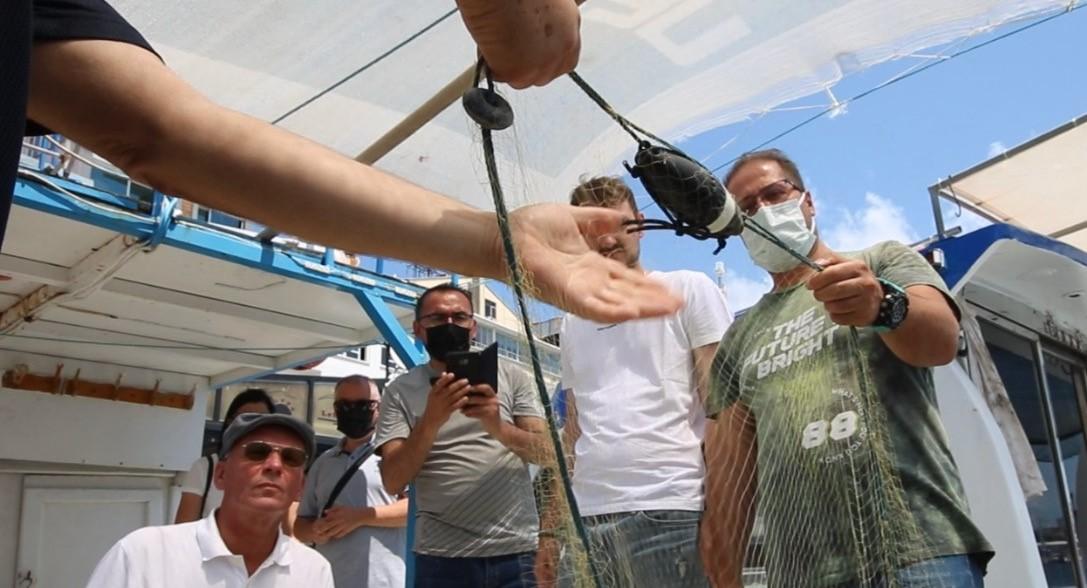
Acoustic deterrent devices save dolphins
The protection of species and biodiversity is essential for breathable air, drinkable water, and clean soil, in other words, life. This is also a way to make our world resilient in the fight against the climate crisis. The European Union’s (EU) Biodiversity Strategy aims to protect species and nature and prevent natural destruction. The EU Delegation to Türkiye together with local partners have implemented a number of interesting projects in this area of our cooperation.
Setting dolphins while keeping fishermen happy
In the Black Sea, the coastal fishermen are troubled by the dolphins, and the dolphins get in trouble with fishing nets. “Dolphins come to the fish caught in our nets, and while trying to eat these fish, they tear the nets. Sometimes, they get entangled in the nets themselves, cannot come to the surface to breathe, and then they drown,” says Ömer Tuncer, President of Sinop Abalı Fisheries Cooperative.
According to the Romanian Mare Nostrum Association, 12,000 to 20,000 dolphins die annually in this way in all countries bordering the Black Sea.
The EU-funded Conceta Project in the Black Sea, with the help of a small acoustic device, aimed to contribute both to the protection of dolphins and to eliminate the economic losses suffered by the fishermen. Ümit Aydın, the Project Coordinator, says: “Cetaceans communicate with sounds like humans, but the communication frequency of dolphins in the Baltic Sea is different from that of dolphins in the Black Sea. In this project, we carried out studies to adapt the acoustic devices used there to the behavioural patterns of dolphins in the Black Sea.”
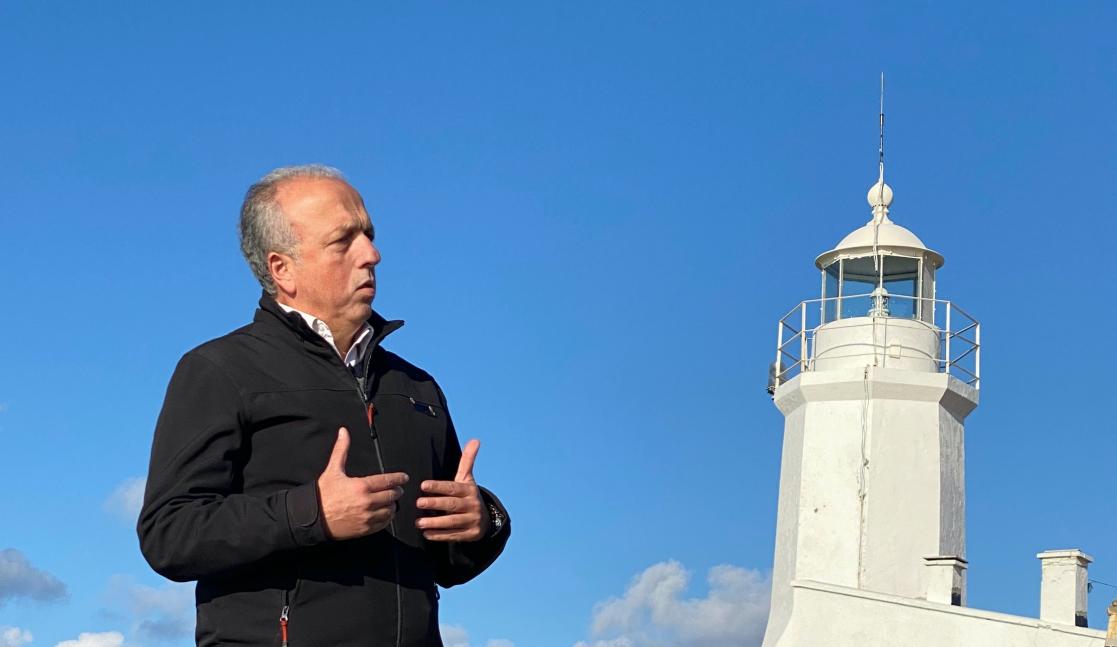
Ümit Aydın, the Project Coordinator
Within the scope of the project, 60 acoustic deterrent devices imported from Germany have been distributed to the members of Sinop Abalı Village Fisheries Cooperative where 110 fishermen are registered for observation and experimental studies.
According to Prof Dr Boris Culik from the Thünen Institute in Germany, these devices, in dolphin language, tell the dolphins to “get away from here”.
Stating that dolphins do not approach the nets fitted with devices, Ömer Tuncer reflects, “I think the project is useful. Those devices are still in the nets of our friends. I hope more nets will be fitted with these devices.”
Yüksel Günaydın, a member of Abalı Fisheries Cooperative, says: “We were suffering double economic loss. Dolphins were both eating the fish we caught and tearing our nets apart. After installing the devices, there has been a significant decrease in dolphins approaching the nets.”
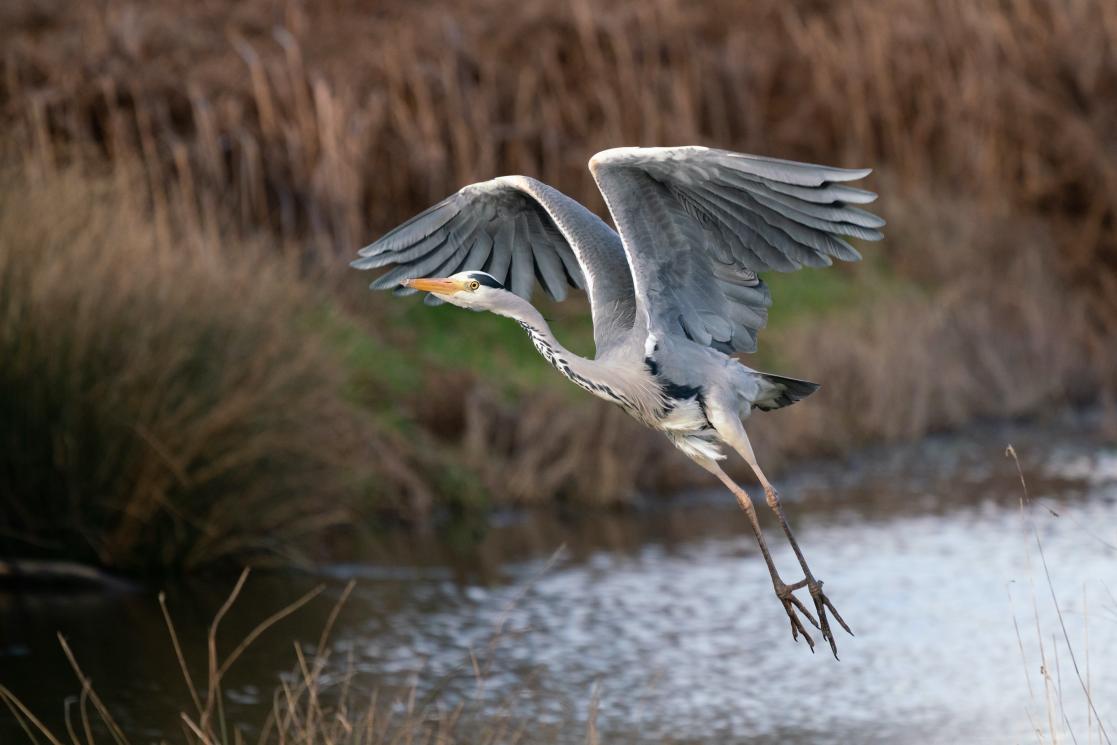
Acoustic deterrent devices save herons, too
Saving sea birds too
Ümit says that during the first stage of the project, “we aimed to sensitise these devices to dolphins living in the Black Sea and ensure interaction, and we succeeded. With the devices, we prevented the deaths of dolphins caught in the nets by about 70 per cent. But something else interesting happened: while conducting these studies, we found that migratory herons also died by getting caught in the nets. However, these birds were not found in the nets with the device. In other words, we realised that we could save both dolphins and birds with the same device. The project demonstrated that sustainable fisheries can be developed with new technologies.”
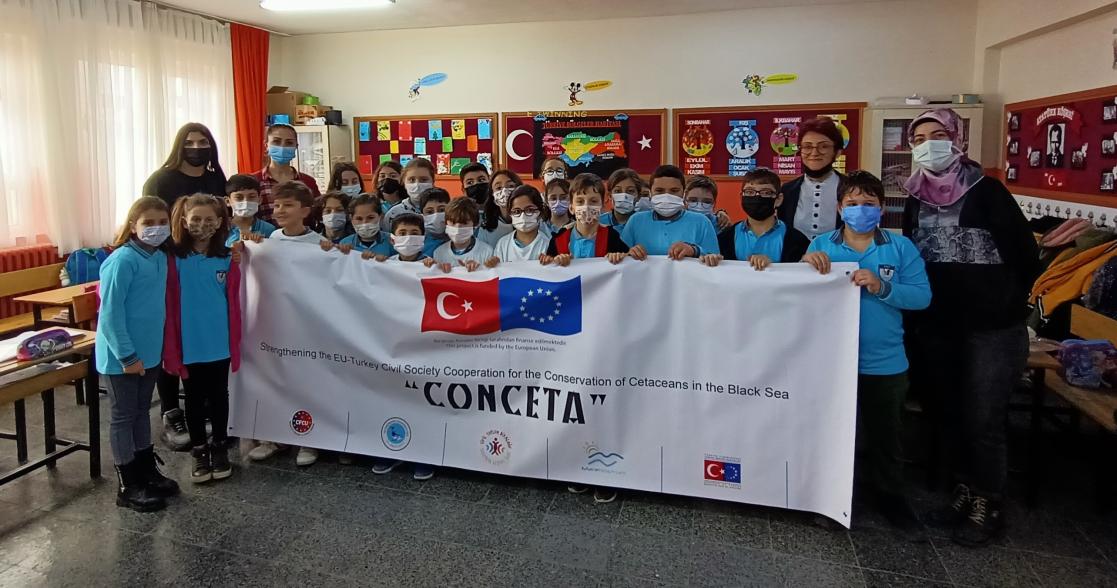
Within the scope of the project, 2,000 students from Sinop received awareness training on protecting marine mammals in sustainable business
The EU’s Civil Society Dialogue Programme backed the €150,000 project Strengthening the EU-Türkiye Civil Society Cooperation for the Conservation of Cetaceans in the Black Sea, coordinated by the Ministry of Foreign Affairs Directorate for EU Affairs.
The project co-beneficiaries included Abalı Village Fisheries Cooperative and Mare Nostrum Association from Romania. It was carried out by experts from Denmark, Germany, Romania and Türkiye in cooperation with Thünen Institute of Germany, Sinop University and Sinop Special Provincial Administration.
Click here to read the project book published after the studies.
Protecting Egyptian vultures
In addition to dolphins and herons, other species monitored to ensure protection include the globally endangered Egyptian vulture, aided within the scope of the Endangered Species Project.
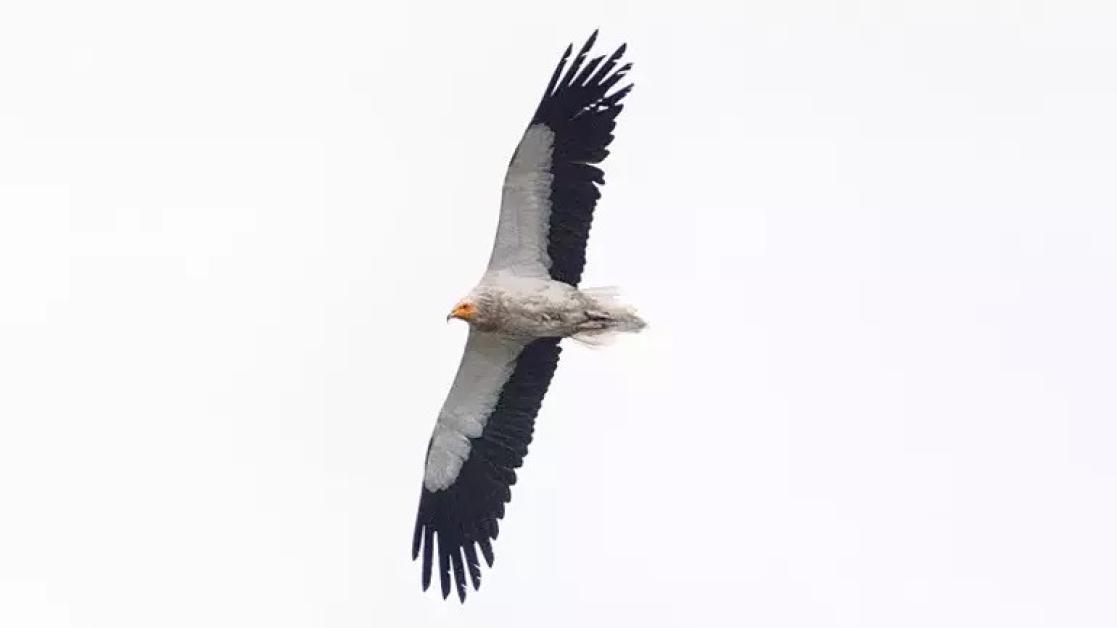
Two major bird migration routes cross Türkiye, which hosts one of the largest breeding populations of the globally endangered Egyptian vultures
“The migratory population of this bird spends winters in Africa and summers in Europe. The densest population of it comes to Türkiye and Spain. Birds that set off from Africa during the migration season enter Türkiye via Hatay and return by the same route. The place of this species in the ecosystem is priceless! Often, dead vertebrates constitute their primary food source. By eating them, they contribute to cleaning nature, so we can call them “nature's cleaners", says Dr Ali Atahan, Head of the Hatay Subaşı Bird and Butterfly Observation Association.
Egyptian vultures are endangered precisely because they are "nature's cleaners". İlker Özbahar, the expert of the Endangered Species Project, says that the drugs containing diclofenac to treat farm animals and the poisons to kill wild animals endanger this species: “The vultures are the first to find poisoned and dead animals. Action plans and road maps have been created to protect these species. Action plans for over 100 species have already been prepared in Türkiye. In this project, we focussed on how the plans could be better prepared and implemented in light of the experiences gained so far and new practices abroad.”

Ambassador Nikolaus Meyer-Landrut observed Egyptian vultures in İnözü Valley in Beypazarı to draw attention to biodiversity within the scope of World Environment Day in June
EU increases biodiversity conservation support
The Head of the EU Delegation to Türkiye, Ambassador Nikolaus Meyer-Landrut, emphasises that protecting species and supporting biodiversity is part of the fight against the climate crisis:
“Protecting marine, land and air ecosystems and biodiversity is crucial for a better environment, health, and access to healthier foods. More than one million species are threatened worldwide, and the EU is making significant investments in biodiversity. The European Commission has increased its support to countries for biodiversity protection to €7 billion. In Türkiye, we have been conducting projects on protecting the environment and biodiversity since 2002. With the Conceta Project, we demonstrated how we can protect marine mammals in the Black Sea. With the Endangered Species Project, we try to identify endangered species, discover their habitats and understand why they are endangered.”
The EU-funded project "Preparation, Implementation and Monitoring of Action Plans for Endangered Species in Türkiye within the Scope of a New Methodology" is carried out by the Ministry of Agriculture and Forestry, the Ministry of Environment and Urbanisation and AGRECO Consortium. A detailed final report will be prepared upon completion of the project.
Please click here to get detailed information about the project.





